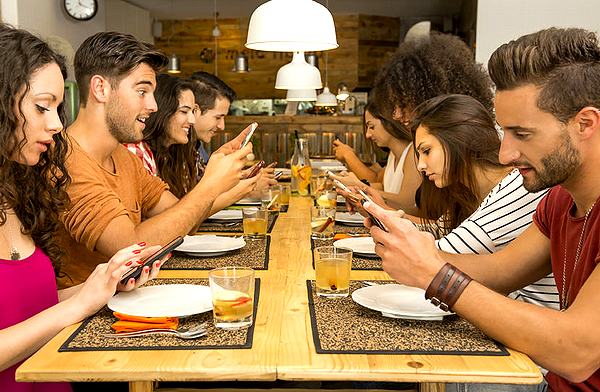Why do we use Facebook? We use it to find people “like me,” and exchange social and lifestyle experiences. Fundamentally, Facebook provides us with a sense of belonging. But it also comes with some worrisome downsides.
The Facebook effect.
Many psychologists see Facebook activity as a reflection of a healthy social life. Research published in Media Psychology (2013) found that people actually experience a boost in self-esteem when they use Facebook. When we receive likes and other affirming comments, we often experience feelings of greater connectivity, increased confidence, decreased loneliness, and even warm feelings of nostalgia.
The Joneses are winning.
A Facebook profile is an ideal version of self. For some, however, preoccupation with the exhibition of the self has become a 24/7 occupation (superiority trap*). Facebook usage can “overtake” daily activities like waking up, getting dressed, using the telephone, or checking e-mail. According to research psychologist Larry Rosen (2011), 48% of 18–34 year-olds check FB when they wake up; 28% before they get out of bed. The scary thing is they can’t seem to shut it off. Are you a compulsive Facebook user? Here are some tip-offs:
- The first thing you do after waking is “Check Facebook.” And it’s the last thing you do at night.
- You check it many times during the day (FOMO = Fear Of Missing Out).
- It consumes an enormous amount of your time and energy.
- Going for more than a day without using FB causes you stress and anxiety.
Monitoring the digital footprints of others has also become much more common. Whether it is the desire to compare, curiosity, or jealousy, Facebook is not only being used to keep up with the Joneses, it’s a way to keep track of the Joneses (inertia trap*). This belief that others are doing better than you are may elicit feelings of low self-esteem, insecurity, narcissism, and envy, as well as replacing important offline ties with your family and friends.
Virtually yours.
Next time, pause to question why you use Facebook and what you’re really getting out of it. To use it in a positive way, here are some things to think about:
- What do your FB activities do for you socially and emotionally? Which parts of Facebook are truly constructive to your personal and professional life?
- Adjust your social media experience to find your comfort “self-disclosing” zone. Facebook should be a place that you design for your social needs.
- Do you spend too much time reading the news feeds of others? Do you feel obliged to respond to some people even though you’d prefer not to? Are your conversations creating support, or are they provocative, challenging, or taunting?
- Do you balance your FB experience with other enjoyable pursuits in your life? Are you spending quality time socializing in real time with real people?
Take the challenge!
If you sense that your use of Facebook is becoming less appealing, try bowing out for a week. Research finds that stepping away from Facebook may actually improve your happiness. A study by the Happiness Research Institute (2015) split 1,095 regular FB users into two groups. One used the social networking site as normal for one week while the other group simply stopped. After the week, those in the ‘treatment’ group reported significant improvements in well-being:
- A better social life.
- Finding it easier to concentrate.
- Being in a better mood.
- Wasting less time.
In lieu of using Facebook, participant’s found that their in-person social skills improved: they talked to each other, they called their family, and they felt much calmer. Why is that? One reason could be Facebook envy. People tend to only post their highlights, so comparing your dull, boring life to the best moments of others can give you a sinking feeling. The study’s authors found that 1 out of 3 respondents envied how happy other people seem on Facebook, and 4 out of 10 envied the perceived success of others.
Experts tell us Facebook probably isn’t making you lonely or unhappy unless you’re using it to replace real interactions and things that give life meaning. Remember, your online friends should be supplements, not surrogates to your social lives. Facebook is only a tool. Face-to-face is reality!
I share, therefore I am.
~ Sherry Turkle, psychologist
* Questionable beliefs can “trap” our better judgment, leading to poor decisions and unintended consequences. In the superiority trap, we often exaggerate the extent of our knowledge, ability, or memory in the belief that we are better than average in most things we do. In the inertia trap, we may be overly influenced by others, including ourselves. Learn more about this, and other traps, in the Young Person’s Guide to Wisdom, Power, and Life Success.
Image credit: “Group of friends at a restaurant” by Erik Emanuel Vieira Reis, licensed from 123rf.com (2015).




